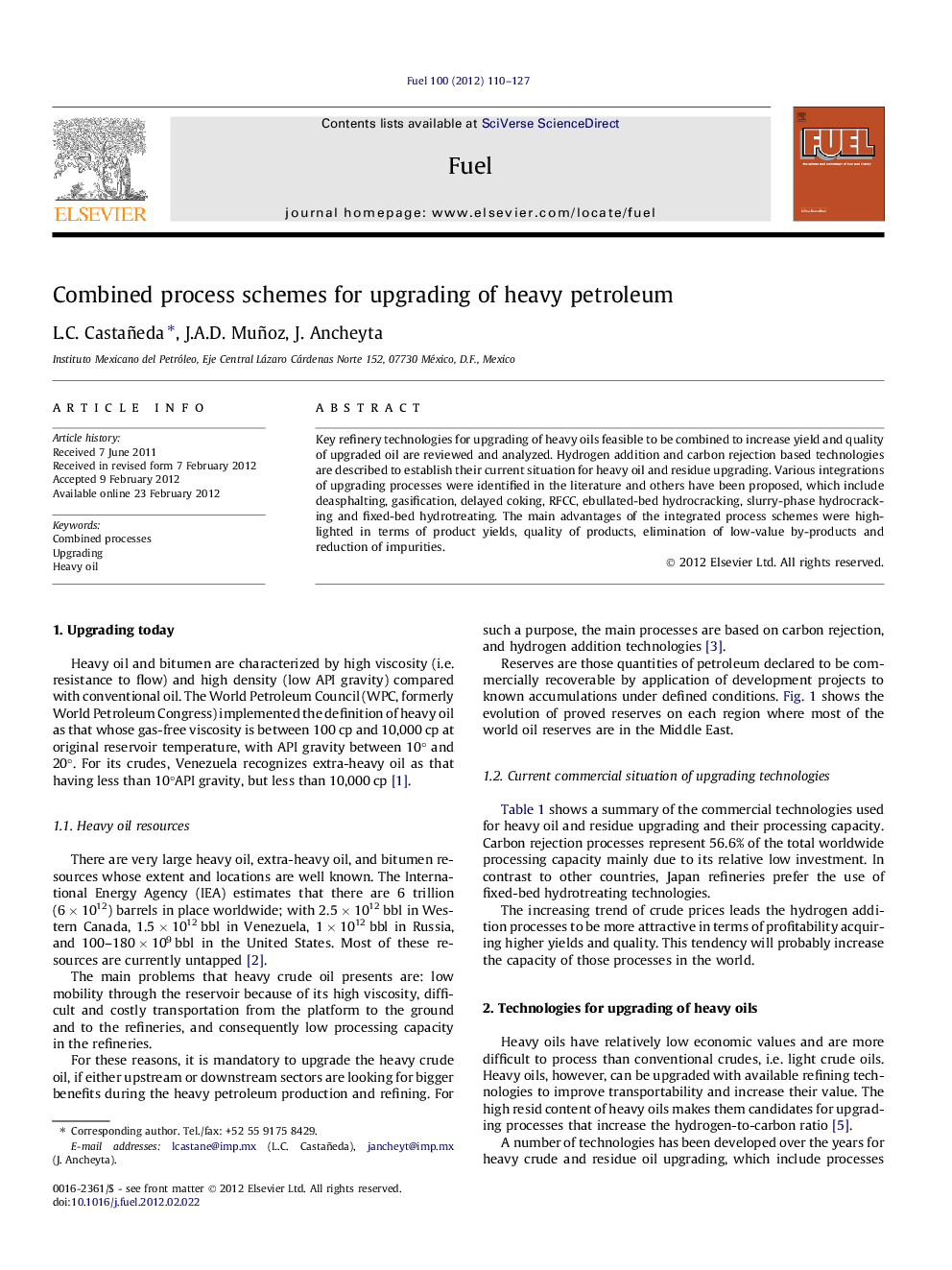| Article ID | Journal | Published Year | Pages | File Type |
|---|---|---|---|---|
| 206403 | Fuel | 2012 | 18 Pages |
Key refinery technologies for upgrading of heavy oils feasible to be combined to increase yield and quality of upgraded oil are reviewed and analyzed. Hydrogen addition and carbon rejection based technologies are described to establish their current situation for heavy oil and residue upgrading. Various integrations of upgrading processes were identified in the literature and others have been proposed, which include deasphalting, gasification, delayed coking, RFCC, ebullated-bed hydrocracking, slurry-phase hydrocracking and fixed-bed hydrotreating. The main advantages of the integrated process schemes were highlighted in terms of product yields, quality of products, elimination of low-value by-products and reduction of impurities.
Graphical abstractFigure optionsDownload full-size imageDownload as PowerPoint slideHighlights► Great incentive for combining the available technologies for upgrading of heavy oils. ► Due to increased production of heavy oil, refiners face a dilemma about which technology to use. ► Combination of processes for upgrading of heavy oils seems a good choice but more research is needed. ► Technical and economical studies are fundamental to make a decision about the integration of process technologies.
